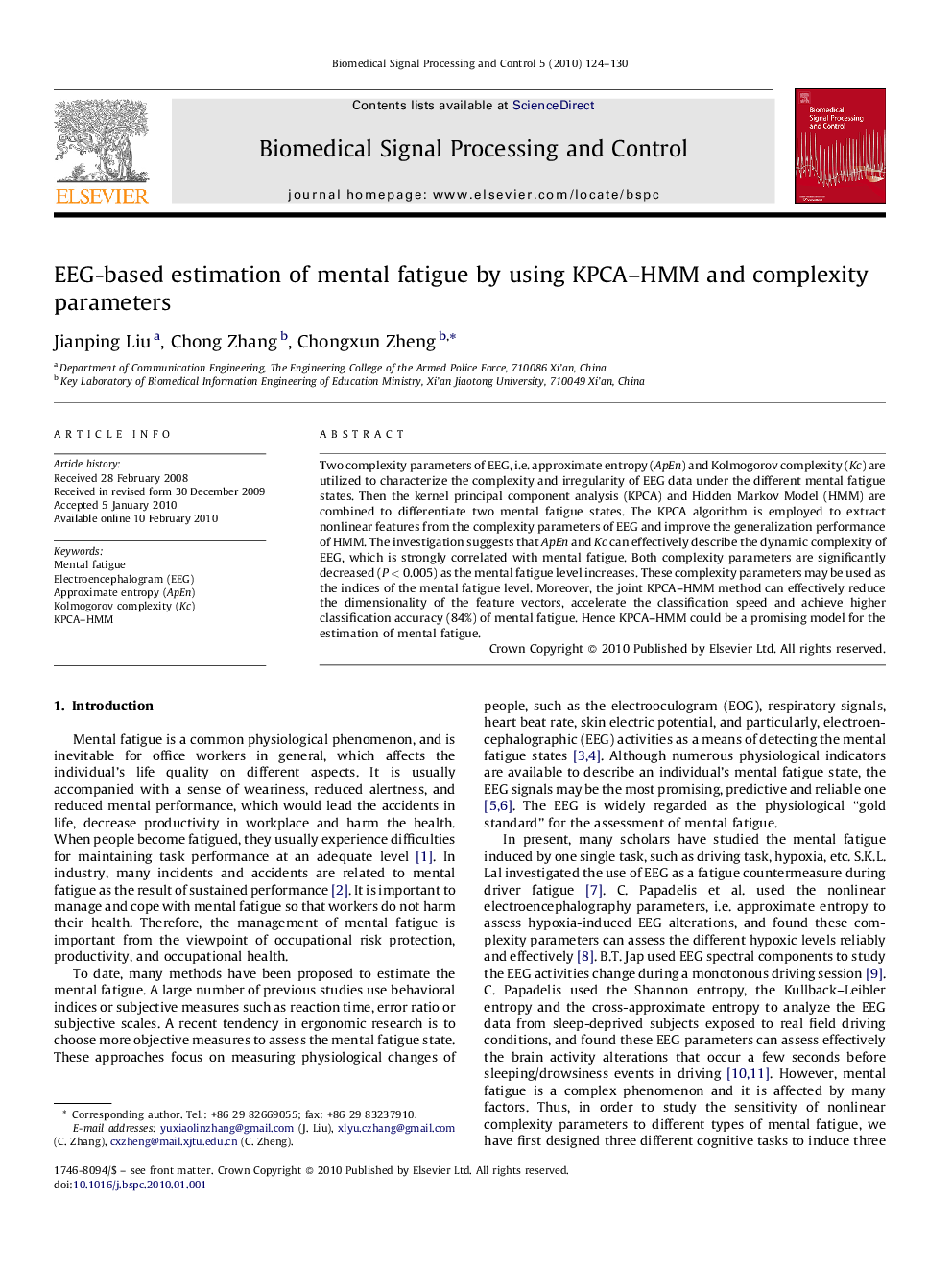| Article ID | Journal | Published Year | Pages | File Type |
|---|---|---|---|---|
| 557650 | Biomedical Signal Processing and Control | 2010 | 7 Pages |
Two complexity parameters of EEG, i.e. approximate entropy (ApEn) and Kolmogorov complexity (Kc) are utilized to characterize the complexity and irregularity of EEG data under the different mental fatigue states. Then the kernel principal component analysis (KPCA) and Hidden Markov Model (HMM) are combined to differentiate two mental fatigue states. The KPCA algorithm is employed to extract nonlinear features from the complexity parameters of EEG and improve the generalization performance of HMM. The investigation suggests that ApEn and Kc can effectively describe the dynamic complexity of EEG, which is strongly correlated with mental fatigue. Both complexity parameters are significantly decreased (P < 0.005) as the mental fatigue level increases. These complexity parameters may be used as the indices of the mental fatigue level. Moreover, the joint KPCA–HMM method can effectively reduce the dimensionality of the feature vectors, accelerate the classification speed and achieve higher classification accuracy (84%) of mental fatigue. Hence KPCA–HMM could be a promising model for the estimation of mental fatigue.
